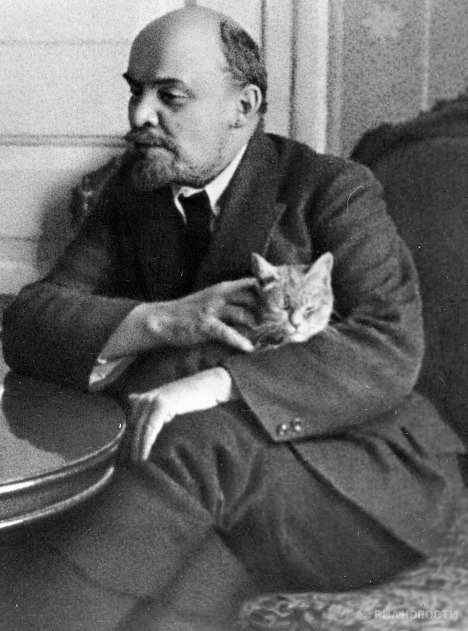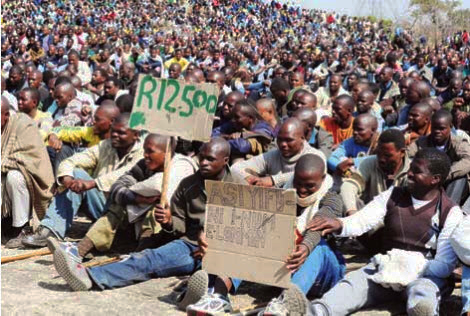
[For more articles by John Riddell, click HERE; for more on SYRIZA, click HERE; for more on the Communist International, click HERE.]
By John Riddell
September 3, 2012 -- Johnriddell.wordpress.com/Links International Journal of Socialist Renewal -- In his review of my edition of the Communist International’s Fourth Congress (1922),[1] Ian Birchall warns against a “scriptural approach” to the Comintern record, but also affirms that studying it “can be of great value”. Where can this value be found? A controversy among Marxists over this year’s elections in Greece points our way to an answer.
Paul Le Blanc: The great Lenin debate -- history and politics

Lenin "favoured an organisation that functioned like a democratic, cohesive, activist collectivity".

Cartoon of Socialist Party leader Emile Roemer that appeared in Quote, a Dutch business magazine. Caption reads: "If Roemer becomes prime minister, we’ll all move to Switzerland.”
September 1, 2012 – Links International Journal of Socialist Renewal -- Although parliamentary elections are often billed as “historic”, and results hailed as “landslides” and “political earthquakes”, it usually turns out not to have been quite that dramatic when the dust settles. But the September 12 national elections in the Netherlands really do seem to be living up to expectations of that magnitude.
The unexpectedly early fall of the previous minority cabinet—the most right wing in living memory, and hostage to the support of xenophobic demagogue Geert Wilders and his Party for Freedom (PVV)—has triggered an election that seems likely to usher in a radical realignment of the landscape on the left, and could realistically produce an outcome that poses some fundamental strategic questions for socialists in the Netherlands and beyond, while presenting an uncomfortable reality check for the country’s economic and political establishment.
The Democratic Left Front's Vishwas Satgar interviewed on the Real News Network, August 31, 2012. Transcript below DLF statement. More at The Real News.
STOP PRESS, September 2, 2012 -- Following national and international outrage, South African prosecutors have provisionally dropped murder charges against 270 miners whose 34 colleagues were massacred by police. Acting national director of prosecutions for the National Prosecuting Authority (NPA) Nomgcobo Jiba said that after having sought an explanation from the department's lead prosecutors, she had taken the decision to review the charge.
A final decision would be taken on the charges after a series of investigations into the shootings had delivered their findings. The workers have been held in custody since they were arrested on the day of the shooting -- August 16 -- at Lonmin's mine in Marikana, northwest of Johannesburg. Courts will start releasing them after police verify their addresses. The first batch of at least 140 miners is due to be freed on September 3 while the rest should go home on September 6.
Thailand: Urgent appeal -- please endorse open letter for the release of Somyot Prueksakasemsuk

[More background information is available here.]
By the Thai Labour Campaign
September 4, 2012 -- Somyot Prueksakasemsuk is to appear again on September 19 to hear the Criminal Court announce the date of the verdict of Somyot's criminal trial. At the same time, it will await the decision of the Constitutional Court on the request forwarded by the Criminal Court of the Constitutional Court’s verdict as to whether or not the lèse majesté law is unconstitutional in response to a petition by him and his lawyers. Somyot, however, speculates that the decision of the Constitution Court will not be delivered on that day and the verdict in on his specific case will be further postponed until the constitutional verdict is reached.
This means that Somyot faces a further and potentially long period in prison.
Hence, we are again calling for your international solidarity to continue sending letters to the Thailand authorities in order that Somyot can be released soon. We need to ensure at least that Somyot be released on bail while he is waiting the verdict.
Act now! Please endorse this open letter to the Thai authoritiess before September 12. Please send the name of your organisation to:
Patchanee Kumnak, program coordinator, Thai Labour Campaign.
Email: patchanee@thailabour.org
By Lionel Bopage
A speech made on August 30, 2012, at a vigil to remember the disappeared in Sri Lanka on International Day of the Victims of Enforced Disappearances, at the State Library of Victoria, Melbourne, Australia.
August 30, 2012 -- Groundviews -- I am honoured to have been asked to speak at this vigil, to remember the disappeared in Sri Lanka on this important occasion of International Day of the Victims of Enforced Disappearances.
Sri Lanka is party to diverse declarations and conventions of the United Nations on human rights. Therefore, the main responsibility of protecting peoples’ rights lies with the government of the day.
Video: Class and climate catastrophe in the Philippines
August 30, 2012 -- GreenLeftTV/Links International Journal of Socialist Renewal -- Sonny Melencio, chairperson of the Partido Lakas ng Masa (Party of the Labouring masses), reflects on the politics of class and catastrophic climate change in the wake of the 2012 Manila floods. Interview by Peter Boyle.
Richard Seymour: The problem of left unity

By Richard Seymour
South Africa: Marikana massacre – a turning point?

Marikana mineworkers on strike for higher pay.
For more coverage of South Africa, click HERE.
By Martin Legassick
August 27, 2012 – Links International Journal of Socialist Renewal -- The massacre of 34, and almost certainly more, striking mineworkers at Marikana (together with more than 80 injured) on August 16 has sent waves of shock and anger across South Africa, rippling around the world. It could prove a decisive turning point in our country’s post-apartheid history.
Marikana is a town situated in barren veld, dry brown grass in the winter, with occasional rocky outcrops (kopjes, hillocks). The Lonmin-owned mines – there are three, Karee, West and East Platinum – are situated on the outskirts of the town. Alongside two of them is a settlement of zinc-walled shacks festooned with lines of washing called Enkanini, where most of the mineworkers live.
South Africa: 'Sorting fact from fiction at Marikana' -- Terry Bell on the massacre of mineworkers

For more coverage of South Africa, click HERE.
August 27, 2012 -- Terry Bell is a widely respected labour reporter and activist based in Cape Town, South Africa. His "Inside labour" columns in Amandla! magazine and on his blog, Terry Bell Writes, are essential reading for those interested in developments in South Africa's labour movement. Below, with Terry Bell's permission, Links International Journal of Socialist Renewal posts some of his recent columns dealing with Marikana massacre and the background to it.
* * *
By Terry Bell
August 23, 2012 -- Terry Bell Writes -- The deaths at Lonmin amount to the bloodiest tragedy of the post-apartheid era. As a result, the blame game is in full swing and is likely to continue in the weeks ahead.

